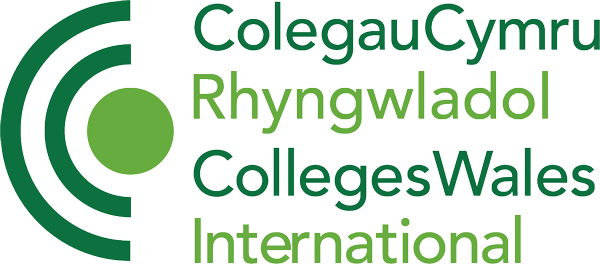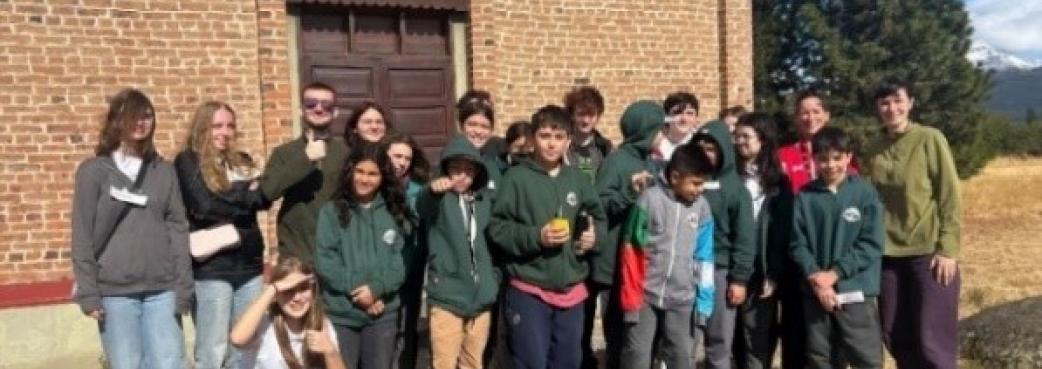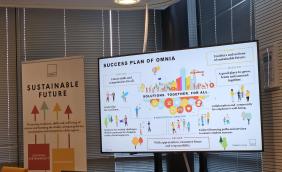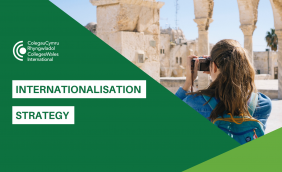CollegesWales International leads on delivering overseas development opportunities for both learners and staff in further education (FE). Spending time studying, volunteering, training or on work placements abroad broadens horizons, strengthens key skills, and brings benefits not only to individual participants but also to communities and organisations here in Wales.
Through our robust network of partners worldwide, with whom we collaborate to offer international enrichment and enhancement opportunities to learners and staff, we also encourage reciprocal visits so that our partners can come to Wales for study, training and to share good practice. These opportunities are made possible through funded mobility programmes such as the Welsh Government international learning exchange programme, Taith, and the UK Government international opportunities programme, the Turing Scheme.
Colleges play a crucial role on the international stage working with partners at home and overseas. In 2023/24, ColegauCymru’s consortium led projects with Taith and Turing have funded a total of 50 overseas visits to 18 countries around the world including Argentina, Nepal, Slovenia and Canada. In total, 365 learners and 60 staff from the FE sector were able to volunteer, work and train overseas – opportunities that would not have been available to them without this funding. These also included two visits for learners with Additional Learning Needs (ALN) and inward visits from 7 countries to Wales for 29 learners and 17 staff.
Looking ahead to 2024/25, ColegauCymru is leading a transnational project with Canadian institutions to address concerns raised in Estyn’s report on ‘Peer-on-peer sexual harassment among 16 to 18-year-old learners in FE’ published in June 2023. The key output will be the formation of a transnational Community of Practice with a focus on preventing and tackling misogynistic attitudes and cultures among groups of learners in FE colleges.
The UK Government’s international mobility programme – the Turing Scheme – also plays an important role. In 2023/24, ColegauCymru, through its pan-Wales consortium project, has funded 216 learners to undertake overseas placements to 12 countries across the globe.
Case studies
To maximize the impact of tighter budgets for international exchanges, strategic planning is crucial. St David’s Catholic Sixth Form College has shown how Taith and Turing funding programmes can work alongside each other to offer different opportunities to FE learners and staff with both programmes supporting the development of new overseas partnerships. St David’s took a whole-College approach to championing the Welsh language and culture, its Catholic ethos and its commitment to social partnerships.
The project took shape in three stages:
Stage One – a staff visit funded by Taith to Ysgol y Cwm, Trevelin, to establish a partnership, share curricula and to explore the practicalities of a learner visit.
Stage Two – a learner visit with accompanying staff funded by The Turing Scheme for to Ysgol y Cwm, Ysgol yr Hendre, and Colegio Camwy, in Patagonia.
Stage Three – an inward learner and staff visit to St David’s from Colegio Camwy (with learners studying A Level equivalent qualifications).
By structuring their project to include staff preparation and development, a learner visit, and an inward visit to Wales, St. David’s has demonstrated how to make the most efficient use of funding, with a view to building strong sustainable partnerships over time. As well as succeeding in increasing the Welsh identity of the College, St. Davids also improved the organisation’s global outlook by:
- creating opportunities for learners to become global citizens;
- increasing the confidence and enthusiasm of staff to engage in international mobilities and partnerships, particularly to long haul destinations;
- establishing sustainable international partnerships, which align with its Catholic ethos and commitment to social partnerships.
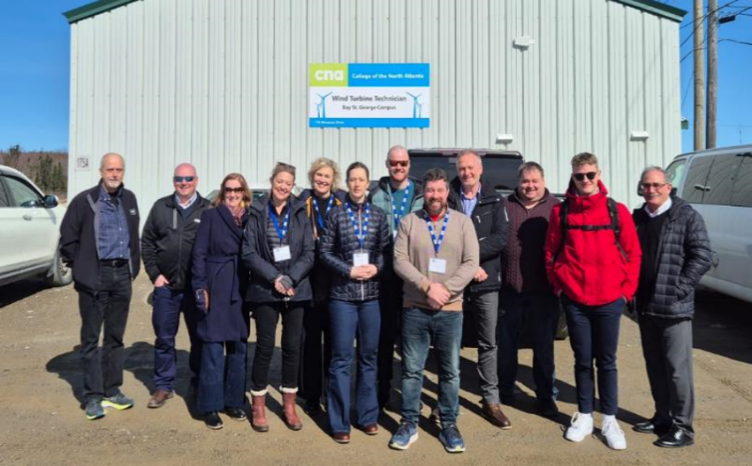
Pembrokeshire College led a Knowledge Transfer Project into Renewable Energy and Females in Engineering – highlighting how engaging with overseas partners can have a positive impact on both staff development, curriculum planning and the Welsh economy. In March 2024, seven members of staff from Pembrokeshire College travelled to Newfoundland, Canada to learn more about curriculum developments in green energies such as Hydrogen and Wind technologies.
The college has since become involved in opportunities around Hydrogen and Wind energy, such as designing training facilities, curriculum development, and staff training/upskilling. College staff were also able to learn from Canadian partners about their delivery of higher-level skills. Pembrokeshire College already delivers to the Hydrogen Carbon sector and this visit helped the college to diversify its offer by supporting other sectors too. The visit provided opportunities for staff development, both face to face and online.
Pembrokeshire college has continued to build a relationship with Women of Steel through online meetings and is working towards building further opportunities for mentoring and work placements. The Women of Steel programme gives women in the United Steelworkers Union (USW), the tools and skills needed to fight for and achieve equality, and take on leadership roles in in Canadian workplaces and in the USW.
Cardiff and Vale College (CAVC) visit to Bosnia & Herzegovina. Wales and its colleges are committed to Wales becoming an Anti-racist nation by 2030, and one of the key parts of the journey is curriculum development. With Taith funding through ColegauCymru’s consortium project, CAVC planned an ‘anti-racist exchange’ visit to Bosnia and Herzegovina.
Through building a partnership with Remembering Srebeneica Wales, staff organised a programme focusing on the Bosnian Genocide - a thre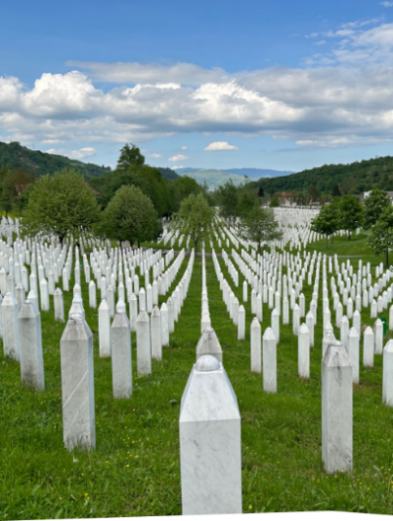 e-year period between 1992 - 1995 where 100,000 people (Bosniaks and Croats) were systematically killed. The most notorious event was in Srebrenica where over 8,000 men and boys were massacred over several days.
e-year period between 1992 - 1995 where 100,000 people (Bosniaks and Croats) were systematically killed. The most notorious event was in Srebrenica where over 8,000 men and boys were massacred over several days.
The visit was an opportunity to re-engage with lost history, but also to understand more about a European neighbour’s culture and history as well as to explore the educational opportunities within Bosnia and Herzegovina. It led delegates on the visit to question the extent to which our own curriculum reflects what happened to our European neighbours, and to consider developing links to support a nation that is recovering from a genocide.
As well as raising awareness of this recent European history, the visit has also led to the following developments at CAVC:
- A proposed learner visit to Bosnia for Art students and the Advanced Skills Baccalaureate Wales;
- Increased engagement with Remembering Srebrenica Wales;
- Development of a new curriculum within the Anti-Racism Metaverse.
Further Information
Learn more about Colleges Wales International on our website, or contact:
Sian Holleran
Project Manager, European and International
Sian.Holleran@ColegauCymru.ac.uk
Vicky Thomas
Project Officer, European and International
Vicky.Thomas@ColegauCymru.ac.uk
